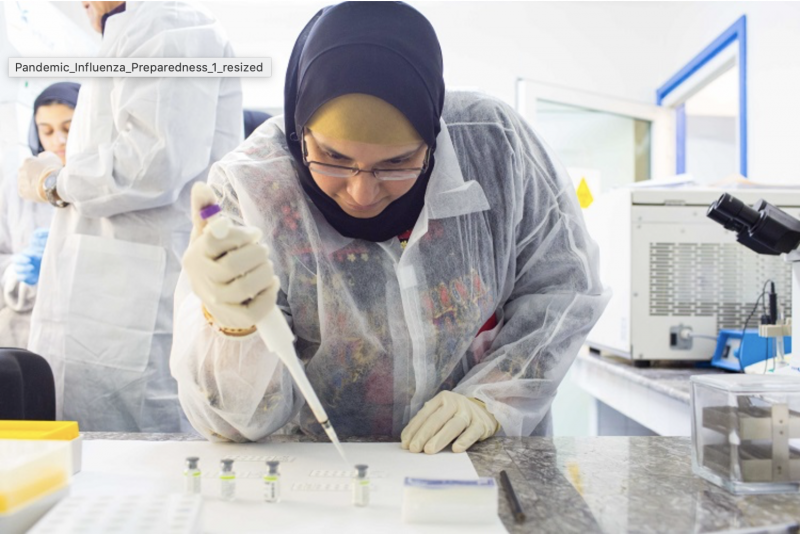
Pandemic Influenza Preparedness (PIP) Framework
Influenza
July 6, 2021
Pandemic influenza is a rare and unpredictable event. It occurs when a new influenza virus – to which people have no pre-existing immunity – appears and infects a large proportion of the world population, with sometimes devastating consequences. The most notorious known pandemic, the Spanish Flu, caused an estimated 20–50 million deaths worldwide between 1918 and 1919.
To prepare for future pandemics, WHO is supporting governments in the Eastern Mediterranean region with a whole-of-society approach, at community, national and international levels. This includes ensuring strong capacity of early warning systems and epidemiological surveillance, laboratories, health systems and health professionals, the emergency response system, and risk communications.
In 2011 the World Health Assembly through resolution WHA64.5 adopted the Pandemic Influenza Preparedness (PIP) Framework, with the objective to improve preparedness and response for the next influenza pandemic. As a unique public-private partnership, the framework has three major components: virus sharing, benefit sharing and governance. The PIP Framework aims to make the international response to pandemic influenza nimble, flexible, effective and equitable. As such, 70% of partnership contribution funds from the PIP framework are allocated to enhance preparedness amongst the low- and middle-income countries. Among the beneficiary countries of the PIP Partnership Contribution, there are seven countries from the Region: Afghanistan, Egypt, Jordan, Lebanon, Morocco, Sudan and Yemen. These countries were selected based on their geographic distribution in influenza transmission zones, country development status and country needs for enhancing influenza epidemiological and laboratory surveillance capacity.
As of March 2018, 19 out of 22 countries in the Region have a functioning influenza-like illness (ILI) and severe acute respiratory infections (SARI) surveillance system, while 16 designated national influenza centres are operational with the ability to detect and confirm unusual influenza viruses with human pandemic potential. In 2017, 14 of those centers shared viruses or influenza-positive samples in 28 shipments, demonstrating both the need for and effectiveness of the PIP Framework. Furthermore, countries are sharing regular weekly and monthly influenza updates to keep partners and the public informed of important epidemiological data, developments, and events.